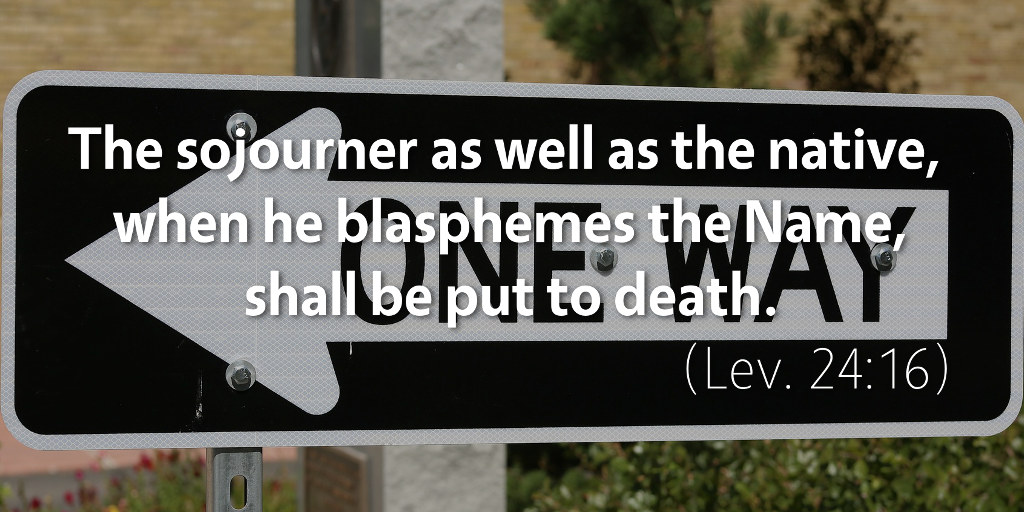Bible Readings for April 20th
Leviticus 24 | Psalm 31 | Ecclesiastes 7 | 2 Timothy 3
In all of Leviticus, only two stories break up the statutes and legislation that otherwise fill up the book:1 one story comes in Leviticus 10, narrating how Nadab and Abihu, the sons of Aaron, had offered strange fire before Yahweh. The other story comes here in Leviticus 24:10–16, when the son of an Israelite woman and an Egyptian man blasphemes “the Name” (Lev. 24:11). In both stories, the offenders are put to death—by Yahweh himself in the case of Nadab and Abihu and by the entire congregation of Israel in the case of the blasphemer.
The obvious question that this story in Leviticus 24 raises is whether we ought to consider the death penalty for blasphemy today; however, we are probably nervous even to raise such a question for two reasons. First, we are surrounded by blasphemy in our culture, so it is worrying to think that our friends and relatives might be committing a crime worthy of capital punishment in these cases. Second, this question obviously raises a host of other, larger questions surrounding the relationship of the church to the state—how would we even approach such a topic today?
But in fact, there is an important difference between the Israelites in Leviticus 24 and those of us living today: namely, Yahweh established a theocracy with Israel through a unique, national covenant that he made with his people. So, in addition to the moral laws represented by the Ten Commandments, and in addition to the ceremonial laws prescribing the nature of Israel’s worship that make up much of Leviticus, God’s (old) covenantal law with his people legislated that blasphemers were to receive the death penalty.
It is still sinful to blaspheme today, since blasphemy is a violation of the third commandment, but because we are no longer members of the old covenant, the civil consequence mandated for blasphemy (the death penalty) no longer applies.
The reason for the death penalty in this case, then, was that Yahweh dwelt in the midst of his people, and if his people flagrantly blasphemed the holy Name of Yahweh, they defiled Yahweh’s holiness, which was such a wicked act that it deserved punishment by death.
Instead, we live today in a totally different reality. We live in the knowledge that Jesus has come into this world to establish a new covenant unlike the covenant that Israel broke (Heb. 8:9), a covenant that is not dependent upon a holy land or a holy temple. Instead, God’s kingdom dwells in the hearts of his people throughout the entire world. Blasphemy is still a violation of God’s holy law, but God’s law no longer mandates civil punishments for that crime.
Rather, we await the coming of Jesus Christ, who will judge the living and the dead for all their deeds. Blasphemy will not go unpunished, but we are not the ones to administer the consequences.
1 Leviticus 8–9 does narrate the process for consecrating and ordaining Aaron and his sons for priestly ministry, but it is written to reflect the step-by-step obedience of Israel in the keeping the law for ordination as laid out in Exodus 29. The stories in Leviticus 10 and Leviticus 24:10–16 represent cases where entirely new precedents are set.
Podcast: Play in new window | Download (5.0MB) | Embed
Subscribe: Apple Podcasts | RSS | More

Scripture quotations are from The Holy Bible, English Standard Version copyright © 2001 by Crossway Bibles, a division of Good News Publishers. Used by permission. All rights reserved.


